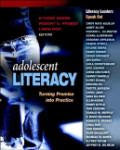After reading the introduction, I'm excited to be a guest at this dinner party. I think it'll be great to experience so many voices in one book and, although I've taken a few online courses, this is my first time blogging so that's exciting as well.
To begin, I'm not familiar with Friedman's The World is Flat, but I did a bit of research and it seems that his overall idea is that we're all on a level playing field in terms of commerce and competition- Wikipedia emphasizes his "equal opportunity" view.
I also came across this:
"A free [audiobook] download was available after registration on the author's website until August 11th, 2008 as a promotion of the author's new book, Hot, Flat, and Crowded."
The website (because I'm not sure if that link will work and in case anyone's interested in the download) is: http://www.thomaslfriedman.com/giveaway.
After I listen to the audiobook, I hope to have more connections to share. In the meantime, I'm relying on Wikipedia's description of how Friedman "suggests the world is "flat" in the sense that globalization has leveled the competitive playing fields between industrial and emerging market countries. In his opinion, this flattening is a product of a convergence of personal computer with fiber-optic micro cable with the rise of work flow software. He termed this period as Globalization 3.0". If anyone is familiar with this text, I'd love to hear your thoughts on it.
Next, like Kylene, I do think now is a time for "bold goals" and "bold ideas" for teaching literacy in a way that makes sense with globalization/shifting demands/evolving technology/altering employment landscape. Without getting caught up in the negatives (fighting for time in our computer labs, restricted access to SMART boards), I'm eager to find out how I can improve on my existing strategies within the limits that are our realities to maximize the success of my students.
I really appreciate the fact that literacy is approached as an integrated area of learning (it's not just on the plate, it is the plate) and that this text seems designed to help "ALL" learners, regardless of where they are on the literacy instruction continuum. This is reassuring to me, because at a vocational school like Century, I work with kids every day who really need daily intensive instruction.
I'm really looking forward to exploring this text and participating in this Book Club.
(I would really like to try some blogging with my kids next year, so this is great practice.)
:)
Natalie
Wednesday, August 6, 2008
Subscribe to:
Post Comments (Atom)

2 comments:
I read The World is Flat about 1 year ago. It makes fascinating reading in that he clearly illustrates that our students will be competing against billions of students from India and China for jobs. With the advent of global communication and collaborative spaces such as blogs and wikis and Google docs, we no longer need even to be in the same space to work together. This is what is leading me to think that we really really need to back off of teaching content to some extent and focus on those skills that will allow our students to compete in this global world. They need to communicate effectively, work collaboratively, problem-solve, synthesize, analyze and create. They need to be able to accept and tolerate people of other cultures. I could go on. Right now in a couple of blogs that I follow (one of which is Paul Cornies' blog called quoteflections - which has by the way gained the notice and promotion by some of the top educational bloggers)have started a meme (like a blog chain letter - sort-of)about essential skills for the future. The posts are well worth reading. Here are some that I recommend:
Doug Johnson: Blue Skunk Blog http://doug-johnson.squarespace.com/blue-skunk-blog/2008/8/3/your-list-of-essential-skills.html
Paul Cornies: Quoteflections http://quoteflections.blogspot.com/2008/08/top-ten-life-skill-wishes-for-future.html
Wow, thanks for the background info., Sharon- I downloaded the audiofile but I'll be adding The World Is Flat to my reading list, too. I agree- I want to know that what I'm teaching will be relevant for these kids- that I'm adequately preparing them for the future.
Thanks for the recommendations- I'll definitely check out Paul's blog.
:)
Post a Comment